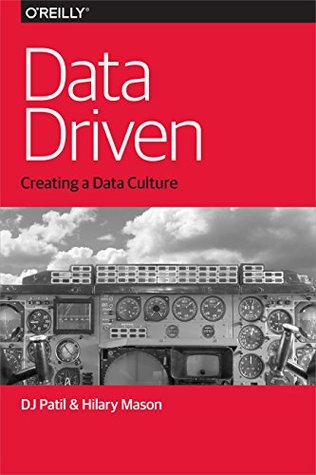More on this book
Kindle Notes & Highlights
Using data effectively is not just about which database you use or how many data scientists you have on staff, but rather it’s a complex interplay between the data you have, where it is stored and how people work with it, and what problems are considered worth solving.
Finally, a data scientist must be able to communicate. Data scientists are valued for their ability to create narratives around their work.
Asking the right questions involves domain knowledge and expertise, coupled with a keen ability to see the problem, see the available data, and match up the two.
If the data scientists are isolated in a group that has no real contact with the decision makers, your organization’s leadership will suffer from a lack of context and expertise.
The CDS/CDO is responsible for ensuring that the organization is data driven.
In Building Data Science Teams, we said that a data-driven organization acquires, processes, and leverages data in a timely fashion to create efficiencies, iterate on and develop new products, and navigate the competitive landscape..
The best data-driven organizations focus relentlessly on keeping their data clean.
The data must be organized, well documented, consistently formatted, and error free.
Successful organizations invest heavily in tooling, processes, and regular audits. They have developed a culture that understands the importance of data quality; otherwise, as the adage goes, garbage in, garbage out.
The best organizations put their data to use. They use the data to understand their customers and the nuances of their business. They develop experiments that allow them to test hypotheses that improve their organization and processes. And they use the data to build new products.
There’s almost nothing more exciting than getting access to a new data set and imagining what it might tell you about the world!
It’s important to state the question in language that everyone in the company can understand. This is harder than you think it will be! Most companies have teams with diverse backgrounds, so it’s important to articulate clearly the question that you are addressing so that everyone in the organization can imagine why it might be relevant and useful.
One of the challenges with data is the power that it can unleash for both good and bad, and data scientists may find themselves making decisions that have ethical consequences. It is essential to recognize that just because you can, doesn’t mean you should. It’s important to get outside input. When uncertain, we turn to well-regarded experts on privacy and legal matters


